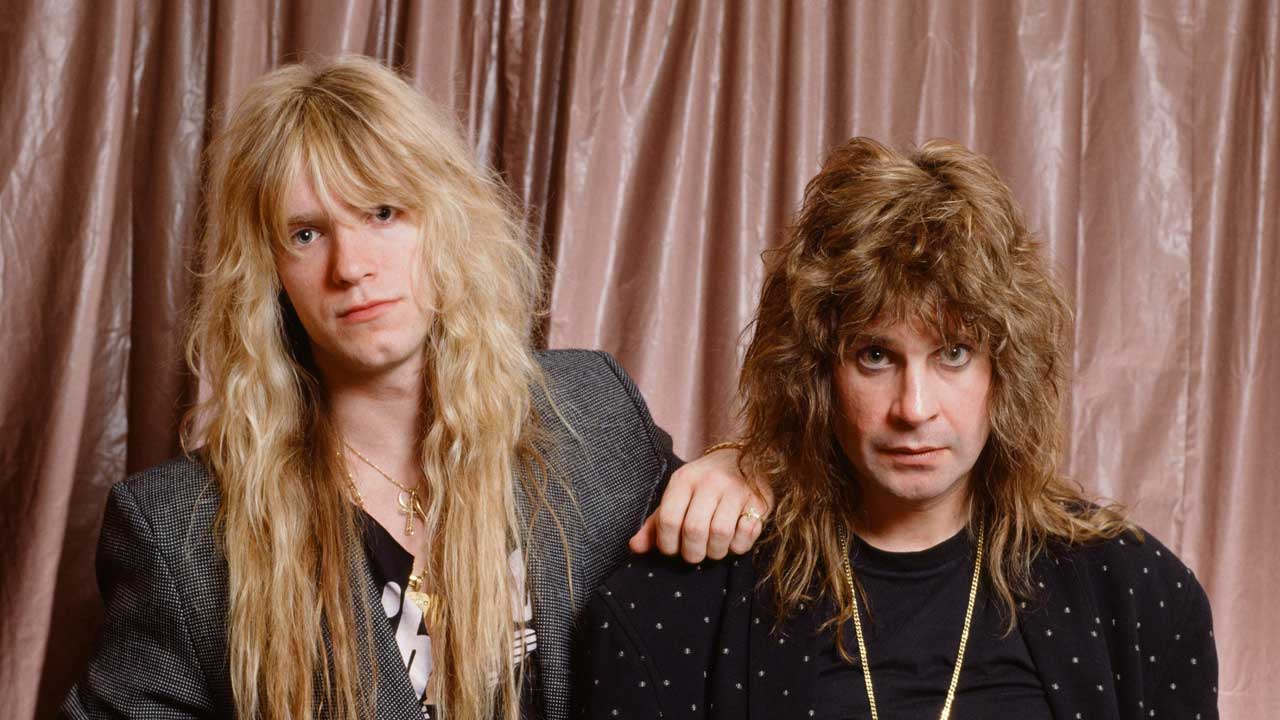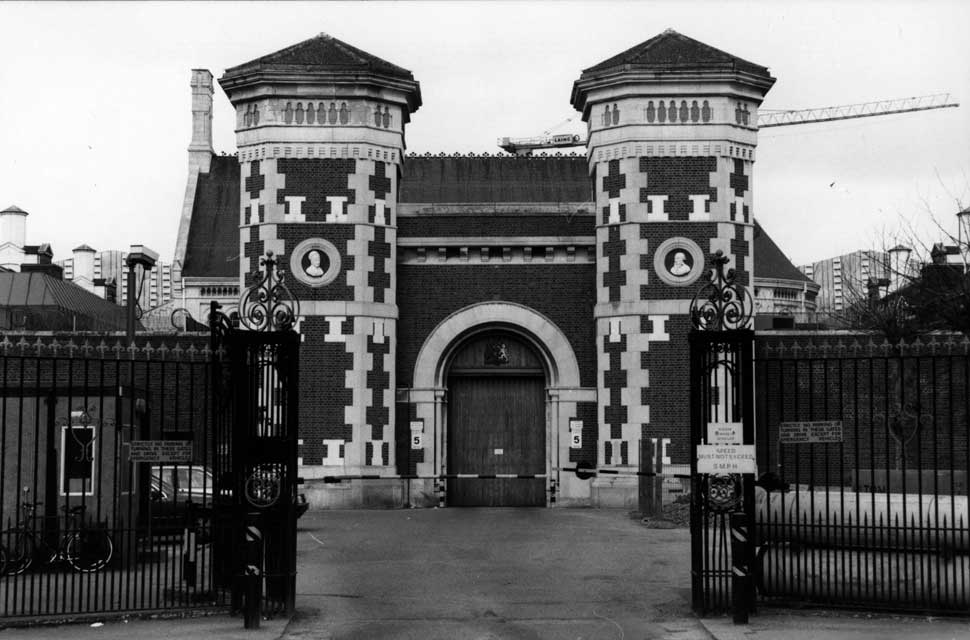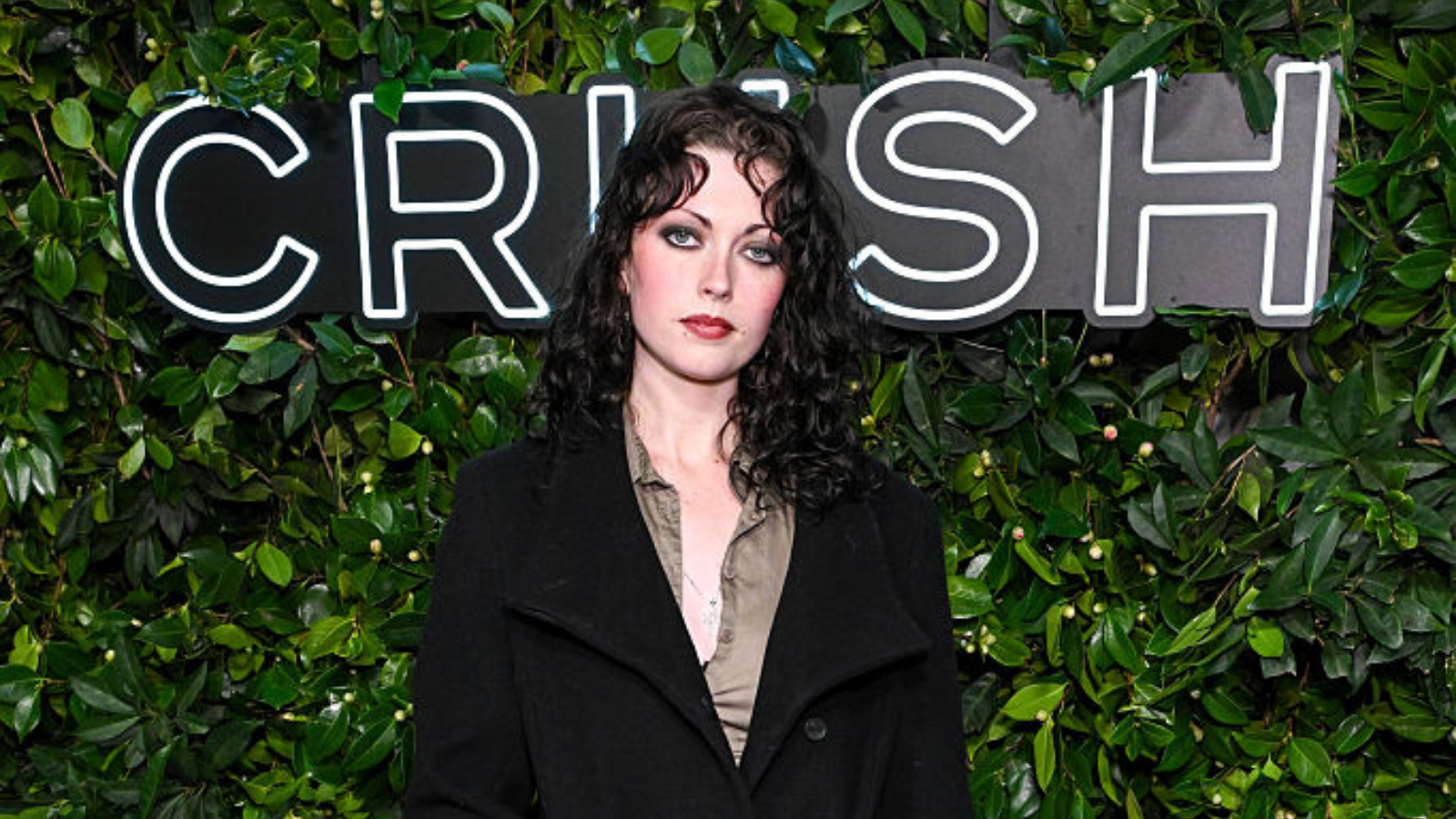Prison, poison and murder: the crazed story of Zakk Wylde's first show with Ozzy
In 1987, the 19-year-old Zakk Wylde was hired to replace Jake E Lee in Ozzy Osbourne's band... and his first show was in London's most infamous prison

As part of his first group of note, Stonehenge (yes, Stonehenge) the young Zakk Wylde was a regular on the New Jersey ocean-side circuit, performing in such hallowed venues as the Stone Pony in Asbury Park (the scene of Bruce Springsteen’s early triumphs).
He had developed a winning combination of whirlwind finger picking, solid crunch and earthy feel. In 1987 a guy called Dave Feld approached the then 19-year-old following one of these bar-room shows. Feld was a friend of rock photographer Mark Weiss, and said he had contacts that would enable Zakk to try out for Ozzy Osbourne’s band, who had just parted company with Jake E Lee.
“Did I know if I was good enough?” Zakk echoes with his usual confidence. “Well, yeah. Without a doubt. I wasn’t getting laid at high school, I was practising for ten hours a day. I was a huge Ozzy freak, I knew all the songs, and suddenly here was this guy who’d taken pictures of Ozzy who thought I should audition.”
Wylde’s sister Amy took some photographs of the guitarist on the family’s porch the following day, and he recorded a cassette of himself playing Crazy Train, I Don’t Know and Mr Crowley. Tipped off that Ozzy was actually in New York at the time, Wylde wasn’t going to risk the package going astray or to allow somebody to beat him to the punch, so he drove to there to make a personal delivery.
“I’d have been happy just going home with an autograph,” he recalls fondly. “But when I got there Ozzy had gone out drinking with Andre The Giant, this five-hundred-pound professional wrestler. Next thing I know, Sharon Osbourne’s on the phone from England. At first I thought some jackass friend had put their mother on the line for a joke, but the call’s time-delay convinced me this was for fucking real.”
Sharon invited a gobsmacked Wylde to fly to the opposite coast for Ozzy’s Los Angeles auditions. Likening the experience to taking a very good laxative, when he got there he wasn’t exactly impressed by the competition.
“Seeing Ozzy sitting there in the room was pretty shocking,” he relates. “Talking to some of the others at the hotel it was obvious they weren’t there because they were Sabbath fans. They knew that the gig paid pretty well and saw it as a stepping stone. When I started jamming, I just recall Ozzy looking over at Sharon and giving her the thumbs up.”
Sign up below to get the latest from Classic Rock, plus exclusive special offers, direct to your inbox!
Wylde was still wet behind the ears and by no means had secured the job yet, but he was flown to England to see whether he and Ozzy could write together. It soon became apparent that they could; the guitarist would have a hand in all eight of the tracks that appeared on Ozzy’s next record, 1988’s No Rest For The Wicked. Wylde sat around and jammed out riffs, Ozzy picking out whatever had song potential. Gradually Wylde became more comfortable around his hero, and Ozzy realised the full potential of his new protégé.
His baptism of fire finally arrived with a low-key gig for the inmates of London’s Wormwood Scrubs prison, a performance that also saw the live debut of bassist Bob Daisley. The setlist has long been lost to the mists of time, but we do know that the set climaxed with an obvious cover: Leiber and Stoller's Jailhouse Rock.

"I did it to work on some material with the new guitarist," Ozzy told Hit Parader the following year. "We wanted Zakk to fit in with the rest of the band before we went into the studio, but I didn't want the press looking down his ass at every show.
"Someone came up with the idea of doing a prison tour because that would give us the chance to get the feeling for the road without worrying about press reaction. It was a pain to get permission to do it because we had to get Margaret Thatcher's permission. Can you believe the Prime Minister had to waste time signing papers that allowed us to play those prisons? My only fear was once we got into those places they wouldn't let me out."
The security fears were probably well-realised. Among the inmates were two men responsible for the deaths of 50 people, mass murderer Dennis Nilsen and nightclub arsonist John Thompson. Also watching was Jeremy Bamber, who'd murdered his entire family in a bid to claim a significant inheritance. And at the end of the show, the stage was apparently invaded by a group of prisoners led by one of the men responsible for killing Metropolitan Police constable Keith Blakelock during the Broadwater Farm riots in 1985.
Supporting Ozzy at the prison were The Scrubs, a NWOBHM band made up of inmates and guards who'd released a single entitled Battle in 1986 and another, Time For You, the year of the show. Ozzy has claimed at times – almost certainly apocryphally – that Nilsen and Thompson were members the band, and that he was served tea at the show by an inmate imprisoned for poisoning eight victims.
"The whole thing was bizarro land; we performed in front of these fuckin 'lifers," Zakk told Metal Hammer. All I could think was, 'I hope I pass this fucking audition. I'm the closest thing to Pamela Anderson these motherfuckers are going to see for the rest of their lives!"
Ozzy went on to write about the prison show in his book I Am Ozzy. “My last good memory of the eighties, before everything went dark, was being sent to Wormwood Scrubs," he recalled. "Not because I’d broken the law again – amazingly – but because I was asked to play a gig there. What a crazy experience that was.
"I might have been in a few police station lock-ups over the years, but I hadn’t set foot in a proper slammer since I’d walked out of Winson Green in 1966. The iron bars, the balconies, even the guards all looked the same as they had twenty years before, but it was the smell that really brought it all back to me: like a public shitter, times ten. Bad enough to make your eyes water.
"I can’t for the life of me figure out why anyone would want to work in one of those places. I suppose they’re all ex-army, so they’re used to it."
As for Zakk, he half-jokes that he was so keen to join Ozzy that they could’ve paid him with six-packs of beer. When the appointment was finally confirmed, it was laced with good, fatherly advice:
“Ozzy’s first words to me were just to play with my heart,” he says. “He told me never to let the music business come between me and my guitar. I could be Peter Grant [famed Led Zeppelin manager] or John Bonham [Zep drummer], but not both.”

Dave Ling was a co-founder of Classic Rock magazine. His words have appeared in a variety of music publications, including RAW, Kerrang!, Metal Hammer, Prog, Rock Candy, Fireworks and Sounds. Dave’s life was shaped in 1974 through the purchase of a copy of Sweet’s album ‘Sweet Fanny Adams’, along with early gig experiences from Status Quo, Rush, Iron Maiden, AC/DC, Yes and Queen. As a lifelong season ticket holder of Crystal Palace FC, he is completely incapable of uttering the word ‘Br***ton’.
- Fraser LewryOnline Editor, Classic Rock
